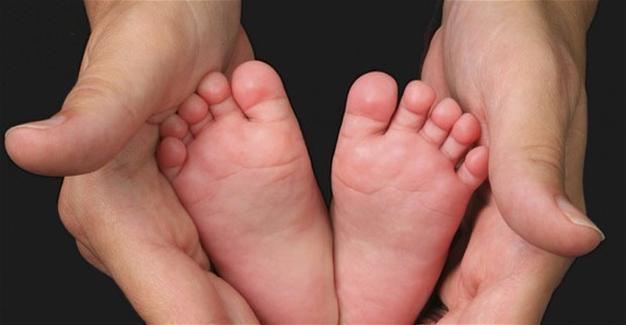Inoculating a baby violates rights, taking blood from heel does not: Top court
MERSİN
 Turkey’s Constitutional Court has ruled in favor of a couple that complained that vaccinating a newborn baby without his family’s consent constituted a rights violation while simultaneously ruling that withdrawing blood from his heel does not contravene any laws.
Turkey’s Constitutional Court has ruled in favor of a couple that complained that vaccinating a newborn baby without his family’s consent constituted a rights violation while simultaneously ruling that withdrawing blood from his heel does not contravene any laws.The case was launched after the baby’s parents objected to hospital personnel vaccinating the baby and withdrawing blood from his heel.
A family counseling center manager in the southern province of Mersin applied to the court after the family’s refusal to permit normal health procedures, demanding that health measures be applied regardless of the family’s wishes. A lower court ruled against the family, which then took the matter to the Constitutional Court.
The top court ruled that the baby’s right to protection and development of material and nonmaterial rights were violated by the administration of obligatory vaccinations. However, the obligatory practice of withdrawing blood from the baby’s heel did not violate any right, the court said.
The decision said an individual’s private life was a broad concept that did not lend itself to a perfect definition and that the individual’s right to physical and spiritual integrity constituted one of the legal interests that is protected by the respect for private life. The state must take precautions to respect private life, the decision also said.
The decision stated that the legal interest encompasses the right to medical intervention and that the concept of medical necessity generally occurs when it is impossible to obtain the will of the patient, typically in cases in which the patient’s condition is life-threatening.
The top court said only smallpox vaccinations were obligatory according to the law and that there was no law mandating the administration of vaccinations.
On the other hand, the Constitutional Court stated that the authority to withdraw blood from the heel was given to medical personnel in order for necessary tests to be conducted on newborns. The tests diagnose diseases related to metabolism and facilitate early treatment, thus necessitating the withdrawal of a blood sample, the court ruled. The practice contributes to the protection of children and public health, the top court also said.
The Constitutional Court’s decision is in line with its decision in 2015, which contradicts the Supreme Court of Appeals ruling on the same matter.
In a June 22, 2015, ruling, the Supreme Court of Appeals’ 2nd Civil Chamber said parental permission was not necessary for certain types of vaccines which were in a child’s “best interest” to receive.
The Supreme Court of Appeals also gave an exemplary ruling on May 4, 2015, in which it said parental permission did not need to be sought for significant vaccines, recalling articles in the United Nations Convention on the Rights of the Child and the Turkish Civil Code which highlights the best interests of a child.
Then health minister slammed the top court’s decision, saying that it should have asked scientific institutions.
“I wish the Constitutional Court issued the ruling taking into account insights from scientific institutions. The rights of individuals matter, but do not matter as much as that of the entire society,” said then-Health Minister Mehmet Müezzinoğlu.
















